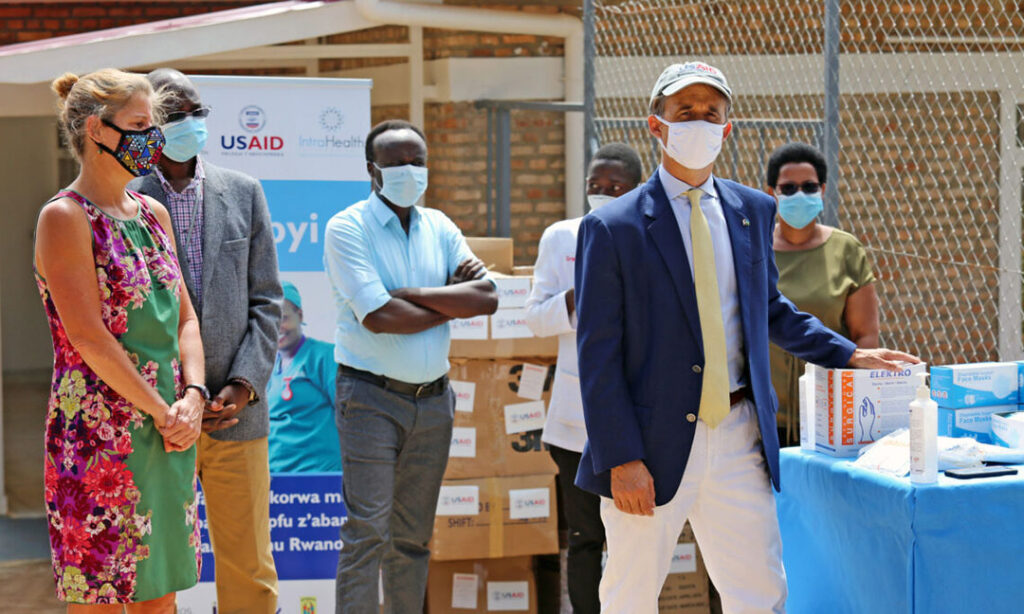ADF STAFF
The U.S. delivered personal protective equipment (PPE) to Rwanda to help one of Africa’s COVID-19 success stories keep the virus at bay. The equipment, valued at more than $200,000, will protect Rwandan health care workers on the front lines of the pandemic.
The U.S. Agency for International Development’s Ingobyi Project delivered the boxes of surgical masks, surgical and nonsurgical gloves, and rubber boots. The project works with the Ministry of Health in Rwandan communities, district hospitals and health centers.
The agency handed over the equipment in a ceremony at Nyamata Hospital in the Bugesera district, one of several hospitals where the U.S. has funded isolation units designed to treat patients with highly infectious diseases such as COVID-19.
“This is a remarkable act for our hospital and generally the health care service in the district,” William Rutagengwa, director-general of the hospital, said in a pressbox.rw story.
Officials said the gear will help prevent disease transmission in five hospitals with isolation units supported by the Ingobyi Project. The project is setting up three other isolation units.
The donation underlined the U.S. government’s continued support of Rwanda during the pandemic, said U.S. Ambassador to Rwanda Peter Vrooman, who attended the ceremony.
“With this donation, we are protecting Rwandan nurses, midwives, doctors and others, and this is particularly important for newborn, child and maternity services,” Vrooman told ADF in an email.
During the event, Vrooman toured the hospital with doctors and government officials. Rutagengwa was among those who thanked Vrooman and American taxpayers.
The November donation builds on $8.2 million the U.S. earmarked for Rwanda’s COVID-19 battle.
In October, the U.S. donated three four-wheel-drive vehicles to Rwanda Biomedical Centre (RBC) to help the country’s health care workers increase contact tracing to contain the spread of COVID-19. The vehicles helped health officials access rural areas. Rwandan officials established a contact tracing system shortly after the first COVID-19 case was confirmed there in March.
The U.S. previously donated 100 ventilators, PPE, hospital beds, sanitizer and other critical items to COVID-19 treatment centers.
Other U.S. donations helped build hand-washing stations in districts across Rwanda, support public communications about COVID-19, increase laboratory diagnostic capacity and biosafety, enhance central- and district-level surveillance, and strengthen infection prevention efforts.
As the latest U.S. delivery of virus-fighting items was delivered, the RBC planned to implement a program called “Scent Identification of COVID-19 Using Dogs” to detect people infected with COVID-19, KT Press, a Rwandan newspaper, reported. The project coincides with Rwanda’s efforts to embark on public virus screening in December.
“This project will accelerate our testing capabilities, especially in public places where mass testing will be needed,” said Sabin Nsanzimana, director-general of the RBC.
The dogs have a successful detection rate of 94%. Similar projects have been launched at airports in Dubai, Lebanon and Finland, the newspaper reported. The “sniffer dogs” program was announced as Rwanda planned to open more businesses and allow international travel.

